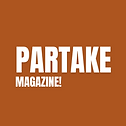Andrew Tate vs. Dr. Umar Johnson - The Battle for Masculinity
- Partake Magazine

- Oct 15
- 1 min read

The hypothetical matchup between Andrew Tate and Dr. Umar Johnson as representatives of modern masculinity sparks an interesting debate about different perspectives on gender roles, empowerment, and societal influence.
Both figures have gained significant attention for their contrasting views and approaches, making it a compelling thought experiment rather than a straightforward competition.
Andrew Tate is known for his outspoken, often controversial views on masculinity, success, and self-assertion. His emphasis on confidence, financial independence, and physical strength aligns with a more aggressive, individualistic vision of modern masculinity.
Tate’s approach appeals to those who value assertiveness, resilience, and a no-nonsense attitude toward life’s challenges.
On the other hand, Dr. Umar Johnson advocates for a more holistic and community-centered approach to masculinity, emphasizing education, emotional intelligence, and cultural awareness.
As a psychologist and educator, Johnson stresses the importance of mental health, responsibility, and cultural identity in shaping healthy masculinity. His perspective is rooted in nurturing and empowering communities through understanding and emotional growth.
Who would win this “modern masculinity grudge match” depends on the criteria. If the contest is about raw confidence and physical assertiveness, Tate’s bold, provocative style may dominate.
However, if leadership, emotional intelligence, and community impact are the measures, Dr. Umar Johnson’s comprehensive approach might come out on top.
Ultimately, both figures embody different facets of masculinity—Tate emphasizing individual strength and resilience, and Johnson championing emotional depth, responsibility, and community upliftment.
The “winner” may be less important than recognizing that modern masculinity is diverse and multifaceted, requiring a balance of strength, emotional intelligence, and social responsibility.



Comments